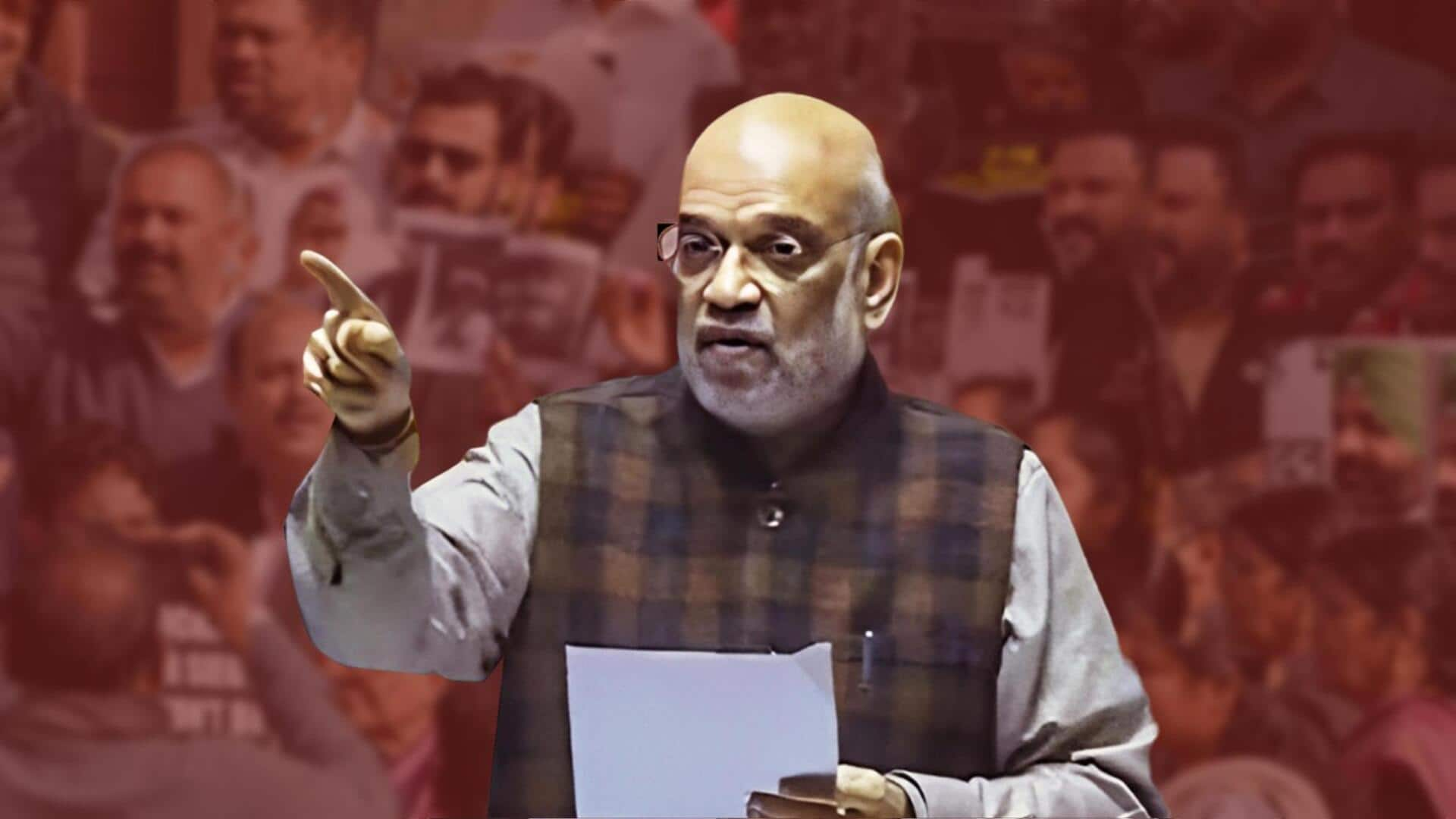
Bills to replace criminal laws passed in Lok Sabha
What's the story
Three bills that seek to replace the existing criminal laws of the country were passed in the Lok Sabha on Wednesday. The Bharatiya Nyaya (Second) Sanhita will replace the Indian Penal Code (IPC), and the Bharatiya Nagarik Suraksha (Second) Sanhita will replace the Code of Criminal Procedure (CrPC). The third bill, the Bharatiya Sakshya (Second) Sanhita, seeks to replace the Indian Evidence Act, 1872.
Context
Why does this story matter?
The IPC, CrPC, and Indian Evidence Act were all enacted during the British colonial era. The Indian government argued that these old laws had "signs of slavery," stating that the new legislation will eliminate "these signs of slavery from a total of 475 places." Since coming to power, the Narendra Modi government has repealed a slew of antiquated laws to modernize the legal system.
Principles
Amit Shah said bills based on 3 principles
The bills were tabled by Union Home Minister Amit Shah on Tuesday. Speaking about the bills on Wednesday, Shah said they are based on three principles: "a person's independence, human rights, and treating everyone with equality." Shah also stated that the new laws will include a provision for the death penalty for mob lynching.
Twitter Post
Changes made in 177 sections
#WATCH | Delhi: Home Minister Amit Shah in Lok Sabha says, "In CrPC there were 484 sections, now there will be 531 sections in it. Changes have been made in 177 sections and 9 new sections have been added. 39 new sub-sections have been added. 44 new provisions have been added..." pic.twitter.com/pqdN1O2Tmr
— ANI (@ANI) December 20, 2023
Section change
Rape now under sections 66 and 69
Previously, punishment for rape was under IPC Section 376; now it is under sections 66 and 69. Murder was listed under Section 302 in the IPC, and now, in Bharatiya Nyaya Sanhita, it is under Section 101. Furthermore, under the new laws, sedition has been repealed and replaced with legislation that will penalize anyone who speaks against the country.
Punishment
'If someone opposes government, he shouldn't be punished'
"If anyone works against the country, he...must not be spared and must be given the strictest punishment," said Shah. He, however, clarified that if someone disagrees with the Centre and its policies, they will not be punished because it is their "freedom of speech." The bills were passed in the absence of 97 Lok Sabha MPs, who were suspended over misconduct and unruly behavior.
Twitter Post
Cases to be brought to trial in 120 days: Shah
#WATCH | Delhi: Home Minister Amit Shah in Lok Sabha says, "Now the accused will get seven days to file a plea for acquittal...The judge has to hold the hearing in those seven days and in a maximum time of 120 days, the case would come to trial. There was no time limit for plea… pic.twitter.com/7KzlLwnbPl
— ANI (@ANI) December 20, 2023
Opposition
Why were the opposition MPs suspended
So far, 144 opposition MPs have been suspended from both Houses. Opposition MPs are demanding a statement from Shah regarding last week's security breach in Parliament. On December 13, two individuals, Sagar Sharma and Manoranjan D, jumped into the Lok Sabha's chamber from the visitors' gallery, shouting slogans and setting off smoke canisters. Two other protestors staged a similar demonstration outside Parliament.
Details
Bills were first introduced in Lok Sabha on August 11
The bills were first introduced in the Lok Sabha on August 11 during the Monsoon Session of Parliament. On December 11, the central government decided to withdraw the three bills from the Lok Sabha, seeking to replace them with new draft bills. On Tuesday, Shah introduced three redrafted bills in the Lok Sabha to replace the old British-era criminal statutes.